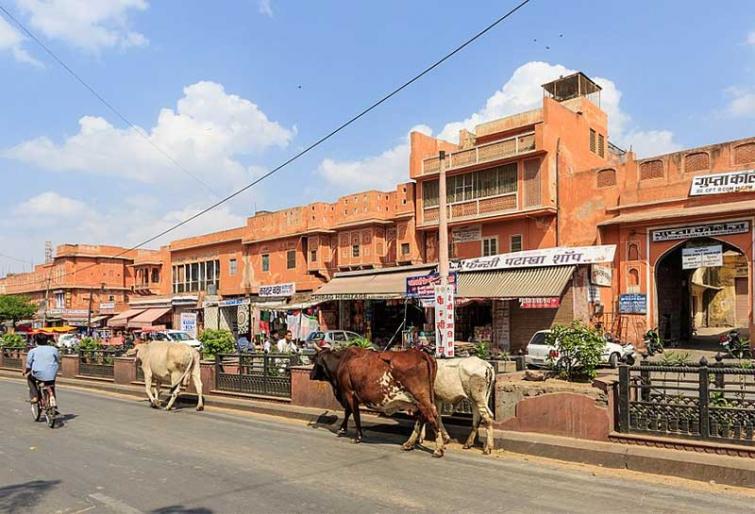
Exploring Jaipur in two days with Savaari
The capital city of Rajasthan is a perfect blend of classic and contemporary. If there is a constant vibe of royalty, there is also the quirks of millennial culture and lifestyle trappings. With its rich heritage served in modern flair, the Pink City offers art, architecture, culture, and history in a single frame. Whether you are an explorer, a typical tourist, an artistic soul, or a literary genius, Jaipur will make you feel at home and embrace you with open arms.
How to travel
Jaipur is well connected to major cities and towns across India. If traveling from anywhere around the capital city of Delhi or around, you can rent a car and do an exciting road trip. Alternatively, you can fly to the city and get a car on rent in Jaipur with a driver, for your local sightseeing tours. With Savaari’s tour packages, you can create a customized itinerary with places of your interest.
A two-day tour of Jaipur
From artistic impressions on stone and marble to the finest creativity in food, Jaipur is a sensory delight. At Savaari, we help you find the best possible way to absorb it all. With our two-day trip plan, you explore the major sites as well as absorb the local culture, experience its warm hospitality, and see different shades of the city’s character.
Day 1
Start your tour with the Amber Palace. The 16th-century fort sits on a hilltop in Amer, about 12 KM from the city center and takes about 40 minutes to reach. The sprawling premise encloses four courtyards, a magnificent palace, royal halls, gardens, and an ancient temple dedicated to Kali. With the exteriors made of sandstone, the structure sits like a golden monument against the blue horizon and is flanked by a huge moat. It will take about two to three hours to tour the important sections of the property. Or, you can spend half the day here, browsing through the ornate interiors of Belgian glass and intricate enamel and mirror work. For a comprehensive tour, stop by the JalebChowk, Diwan-e-Aam (the public hall), Diwan-e-Khaas (private lounge), and Sheesh Mahal (hall of mirrors).
About 2 KM ahead, near Kheri Gate, you will find an ancient stepwell, which is also an archeological site.
Come back to the city and take a tour of the JalMahal. The palace, sitting inside the Man Sagar Lake, has carried different stories of romance, revenge, and politics, over the years. Its incredible architectural beauty is coupled with mysterious vibes, which makes the site more alluring to many. The marble structure on the sparkling lake shines as bright as a diamond, on a full moon night.
As your last stop for the day, visit the famous HawaMahal, a name that has found its mention in literature, movies, and pop culture. This iconic structure is synonymous with Jaipur’s legacy. Built with pink sandstone, the 953 jharokha or box windows, this palatial monument remains airy and breezy throughout the year, even in peak summers.
Spend the evening at the Indian Coffee House, near Ajmeri Gate. This is one of the oldest watering holes of Jaipur, frequented by the creative souls of the city. As of today, it is also a popular hangout for modern artists, writers, and travelers. The muted interiors with high-arched ceilings, vintage fixtures, and dusty paints, creates the right ambiance for a cozy time and good conversations with like minds.
Day 2
If you had missed anything on your first day of the tour, you can cover them on the second day. JantarMantar is a good place to start. The ancient astronomical observatory is one of the oldest in the country and is now considered a heritage site. This is a great place to visit if you are traveling with kids, who can browse through various scientific equipment built hundreds of years ago.
Next, you can visit the Albert Hall Museum, right in the city center. The 18th-century museum boasts a rich display of art, artifacts, arms, jewels, and more, which sums up the history of Jaipur and its ruling families.
Your Jaipur trip will be incomplete without visiting the MotiDungri. It used to be the royal residence of Sawai Man Singh II and was last known to be occupied by RajmataGayatri Devi. The palatial structure sits on a small hillock, surrounded by greenery. If you are traveling during or after the monsoon, this will be a scenic place to spend a few years, with lavish greenery and fresh air. Don’t miss the Ganesh temple within the premise. Made of white marble, it shines as bright as a pearl against the rugged fort.
End the day with a panoramic view of the city skyline from the Nahargarh Fort. The fort also has an open-air restaurant, known to be one of Jaipur’s finest, which makes for the perfect dining experience with a view.
Savaari Recommends:
• If traveling in big groups, avail a tempo traveler on hire in Jaipur and save on local tours.
• Avoid visiting Jaipur during peak summers.
• If traveling in winter, don’t miss the vintage car rally.
Support Our Journalism
We cannot do without you.. your contribution supports unbiased journalism
IBNS is not driven by any ism- not wokeism, not racism, not skewed secularism, not hyper right-wing or left liberal ideals, nor by any hardline religious beliefs or hyper nationalism. We want to serve you good old objective news, as they are. We do not judge or preach. We let people decide for themselves. We only try to present factual and well-sourced news.






